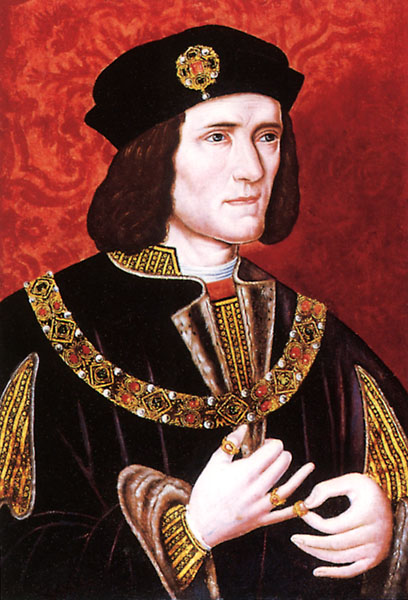 The news that the remains of His Highness (It was not until the reign of James I did British sovereigns use the absolutist style “Majesty” – a European import), King Richard III of England lie buried under the surface of a car park of the social services in Leicester raises the spectre (sorry, we could not resist that) of the subsequent re-interment of the Royal remains if found.
The news that the remains of His Highness (It was not until the reign of James I did British sovereigns use the absolutist style “Majesty” – a European import), King Richard III of England lie buried under the surface of a car park of the social services in Leicester raises the spectre (sorry, we could not resist that) of the subsequent re-interment of the Royal remains if found.
The opinion of the British Gazette is clear: given that any bones found are more than likely to be positively identified as belonging to the late King via a DNA match to a Canadian gentleman, a Mr Ibsen, a descendant of the late King’s sister Anne of York, they should be re-interred in Westminster Abbey.
King Richard III’s reputation was of course traduced by his successors the Tudors. The murder of the Princes in the Tower probably never took place and if they were murdered, there is no evidence that King Richard III was behind it. Furthermore, if a reasonable quantity of skeletal remains are found, scientists will be able to refute the rumour that the King was a hunchback. In fact if a reasonably complete skull is found the scientists will be able to reconstruct an accurate 3D image of the late King’s true appearance.
In suggesting that this King who was much maligned by his successors should be re-interred within the august confines of Westminster Abbey, British Gazette readers will not fail to comment upon the irony that the current Europhile Quislings in the hierarchy of the Church of England are desirous of commemorating the Arch-Traitor Heath with a plaque on the floor of the Abbey.
Of course, Heath is the very opposite of the late King; a traitor whose reputation has been lionised by his successors, who of course are fellow traitors. What is even more ironic are the late King’s last words: William Shakespeare – no doubt to avoid getting into “hot water” – literally as being boiled alive was a method of execution used in those times – although generally for murderers who had poisoned their victims – of the Tudor Queen Elizabeth I – changed them to the famous, “A horse, a horse, my Kingdom for a horse…” from the actual reported words, “Treachery, treachery, treachery….”
How fitting are those words for the England of today.
Speaking the Truth unto the Nation
